Cashless transactions and payments are not only a cheap, fast, and geographically independent form of payment, but also help digitize cash flow and manage finances intelligently; promoting the development of technology (Mobile Banking, e-wallets, cards, QR codes, Vn Pay, mobile payments, etc.).
The Deputy Prime Minister assessed that in recent years, cashless payments have developed rapidly and remarkably. Specifically, by the end of 2024, Vietnam had more than 204.5 million individual customer payment accounts; 154.1 million bank cards; and 86.97% of adults had bank accounts. We have implemented the majority of online payments such as hospital fees, tuition fees; transportation, fuel... linked to invoice issuance, creating convenience and reducing costs for businesses and people.
The Deputy Prime Minister stated that the National Assembly has enacted numerous laws related to this field, such as: the Law on Electronic Transactions, Cybersecurity, Information Technology and Telecommunications, Information Security, Digital Data, Anti-Money Laundering, Credit Institutions, and Personal Data Protection. The Government has also issued relevant decrees. These are crucial legal foundations that create momentum for the development of digital platforms, promote cashless payments, and conversely, foster the growth of the digital economy .
Emphasizing that we are always aware of the benefits of cashless payments, the Deputy Prime Minister stated that for businesses and citizens, cashless payments help increase business efficiency, easily control cash flow, expand the online market, save costs, reduce paper usage to reduce environmental pollution, and at the same time, bring convenience and safety to people when using cashless payment services.
However, the implementation process still faces challenges that need to be overcome in the future. For example, the habit of using cash, the fear of leaving a trace, and reluctance to share information. The infrastructure is not yet synchronized, resulting in weak and intermittent signals in some areas, making payments difficult. There are also security risks (spoofing messages, national IDs, OTP codes, etc.) leading to financial losses. Some legal frameworks, such as those for cryptocurrencies, cross-border payments, and virtual currencies, are still incomplete.
According to Deputy Prime Minister Ho Duc Phoc, in the coming period we need comprehensive solutions to rapidly develop cashless payments and promote the development of the digital economy.
The Deputy Prime Minister emphasized several solutions that need to be focused on, the first being the completion of legislation to create a legal framework that will provide momentum for development. For example, currently we lack a legal basis for virtual currencies, cryptocurrencies, and cross-border payments… The Government has assigned the Ministry of Finance to research and develop a legal framework on this issue. This is a very difficult and risky issue, but it is a global trend. Therefore, according to the Deputy Prime Minister, "we cannot stand aside." In addition, research and improvement of the legal basis for cross-border payments are necessary.
Simultaneously, we will continue to focus on strongly developing shared infrastructure, information technology infrastructure, payment technology, etc., diversifying products and services. We will enhance security and protection against cybercrime, safeguard the interests of citizens in cashless payments, and promote public awareness campaigns to educate citizens and businesses. We will improve the effectiveness of coordination among ministries, sectors, localities, and units, as well as the quality of human resources, to effectively implement the set objectives.
Source: https://baophapluat.vn/hoan-thien-phap-luat-de-thuc-day-thanh-toan-khong-dung-tien-mat-post551866.html


![[Photo] Closing Ceremony of the 10th Session of the 15th National Assembly](/_next/image?url=https%3A%2F%2Fvphoto.vietnam.vn%2Fthumb%2F1200x675%2Fvietnam%2Fresource%2FIMAGE%2F2025%2F12%2F11%2F1765448959967_image-1437-jpg.webp&w=3840&q=75)


![[Photo] Prime Minister Pham Minh Chinh holds a phone call with the CEO of Russia's Rosatom Corporation.](/_next/image?url=https%3A%2F%2Fvphoto.vietnam.vn%2Fthumb%2F1200x675%2Fvietnam%2Fresource%2FIMAGE%2F2025%2F12%2F11%2F1765464552365_dsc-5295-jpg.webp&w=3840&q=75)


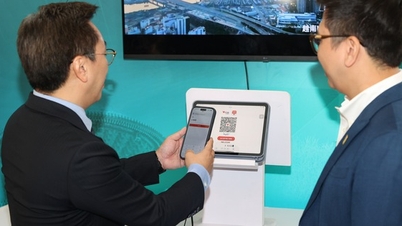



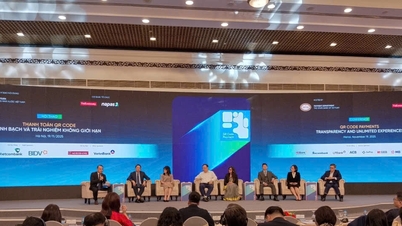

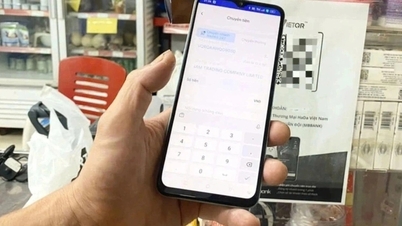






















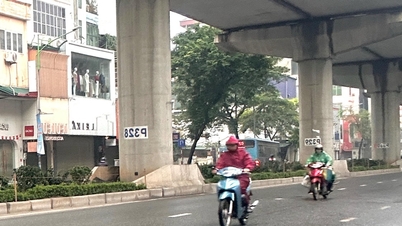




















![[OFFICIAL] MISA GROUP ANNOUNCES ITS PIONEERING BRAND POSITIONING IN BUILDING AGENTIC AI FOR BUSINESSES, HOUSEHOLDS, AND THE GOVERNMENT](https://vphoto.vietnam.vn/thumb/402x226/vietnam/resource/IMAGE/2025/12/11/1765444754256_agentic-ai_postfb-scaled.png)














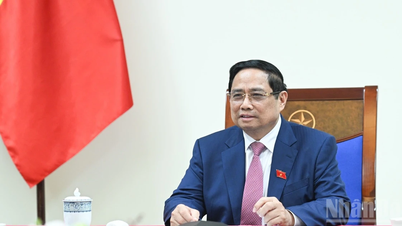








































Comment (0)